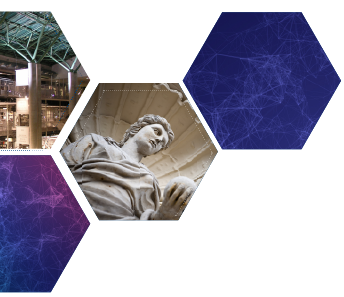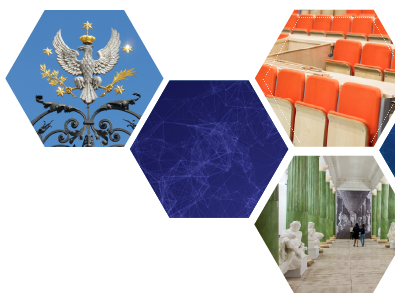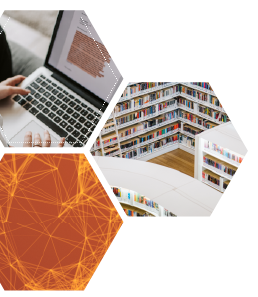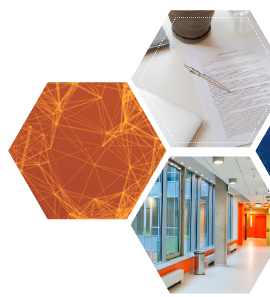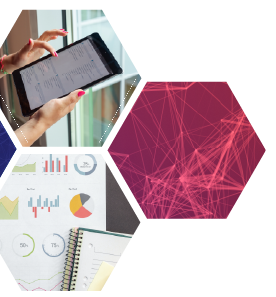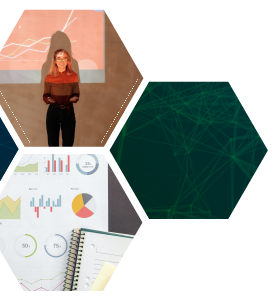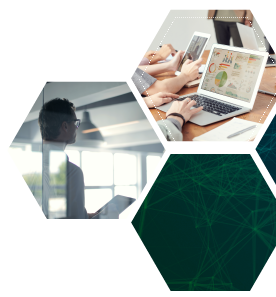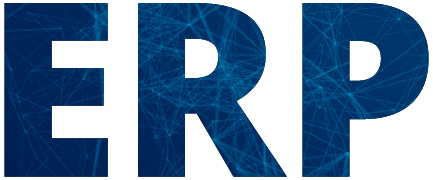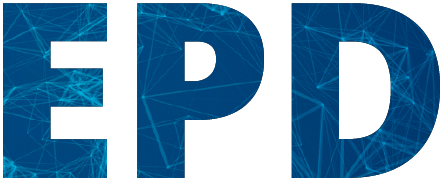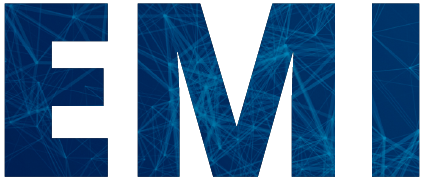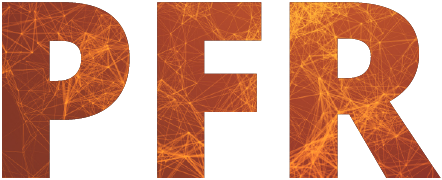-
-

-
School for International Science UW (SIS UW) to jednostka powstała przy Wydziale Neofilologii Uniwersytetu Warszawskiego organizująca otwartą ofertę kursów i szkoleń służących umiędzynarodowieniu wyników badań oraz oferty dydaktycznej Uniwersytetu Warszawskiego skierowanych do pracowników oraz doktorantów UW.
Celem SIS UW jest umożliwienie pracownikom i doktorantom UW podniesienia kompetencji w obszarach kluczowych dla ich rozwoju naukowego, takich jak przygotowanie publikacji w językach obcych, prezentowanie wyników badań i udział w debatach w międzynarodowym środowisku, prowadzenie zajęć w języku angielskim czy praca z narzędziami wykorzystywanymi w metodologii badań empirycznych.
-
-
-
-
English for Research Publications
English for Research Publications to kurs specjalistycznej angielszczyzny akademickiej, w trakcie którego uczestnicy poznają fachowe słownictwo oraz struktury gramatyczne i wyrażenia typowe dla publikacji naukowych w języku angielskim. Istotną część kursu stanowi również praca nad umiejętnością zwięzłego i klarownego formułowania argumentacji oraz umiejętnością dostosowania tekstu do wymagań konkretnego wydawcy bądź stylu formatowania. Kurs podzielony jest na moduły poświęcone konkretnym obszarom kompetencji, takim jak: użycie słownictwa i struktur gramatycznych charakterystycznych dla tek- stów akademickich, korzystanie z narzędzi edytorskich itd. Poszczególne umiejętności ćwiczone są w kontekście konkretnych elementów publikacji naukowej, takich jak : abstrakt, wstęp, opis badania, dyskusja itd.Kurs skierowany jest do osób posiadających znajomość języka angielskiego na poziomie min. B2.
-
cele kursu:
Uczestnicy kursu English for Research Publications dowiedzą się m.in.:
- jak dostosować swój tekst do potrzeb konkretnego odbiorcy, w tym konkretnego czasopisma z jego wymaganiami redakcyjnymi;
- jakie struktury gramatyczne, wyrażenia i słowa stosować w tekście akademickim, aby precyzyjnie i zgodnie z normami kulturowymi krajów anglosaskich przedstawić wyniki swojej pracy;
- jak dostosować teksty własne do konwencji angielszczyzny akademickiej;
- jak przygotowywać poszczególne części artykułu z wykorzystaniem odpowiedniego słownictwa, odpowiednich struktur gramatycznych i z zachowaniem norm dotyczących argumentacji oraz dokumentacji wyników swojej pracy;
- jak przeprowadzić korektę językową tekstów własnych.
-
-
-
English for Presenting and Debating
Kurs English for Presenting and Debating doskonali kompetencje językowe oraz warsztat uczestników w zakresie efektywnego prezentowania wyników własnych badań, umiejętnego prowadzenia dyskusji w języku angielskim oraz uczestnictwa w debatach w międzynarodowym środowisku. Uczestnicy kursu poznają różne techniki przygotowania i wygłoszenia referatu, poznają słownictwo i wyrażenia stosowane w dyskursie akademickim oraz sposoby skutecznego zainteresowania i zaangażowania publiczności. Program kursu obejmuje także zajęcia poświęcone pisaniu abstraktu, przygotowaniu prezentacji w sposób klarownie prezentujący zebrane dane oraz sposobom interakcji z innymi uczestnikami konferencji bądź debaty, zwłaszcza w zakresie odpowiadania na pytania, wyrażania opinii, odpierania argumentów rozmówcy czy zajmowania odmiennego stanowiska. -
cele kursu:
Uczestnicy kursu English for Presenting and Debating dowiedzą się:
- jak napisać abstrakt na konferencję;
- jak nadać prezentacji profesjonalną i przejrzystą strukturę;
- jak przygotować i przeprowadzić wypowiedź na konferencji;
- w jaki sposób odpowiadać na pytania uczestników spotkań i debat;
- jak skutecznie prowadzić dyskusję akademicką.
-
-
-
English as a Medium of Instruction
English as a Medium of Instruction to kurs prowadzenia zajęć w języku angielskim. Celem kursu jest wsparcie pracowników Uniwersytetu Warszawskiego w przygotowaniu angażujących słuchaczy, przemyślanych metodycznie i poprawnych językowo zajęć dydaktycznych. Uczestnicy poznają fachowe słownictwo oraz struktury gra- matyczne i wyrażenia typowe dla procesu dydaktycznego prowadzonego na poziomie uczelni wyższej. Kurs kładzie nacisk na rozwijanie wszystkich sprawności niezbędnych do skutecznego prowadzenia zajęć w języku angielskim – począwszy od tworzenia programu kursu, poprzez efektywne planowanie i prowadzenie ćwiczeń oraz wykładów, aż po proces weryfikacji wiedzy. Program kursu obejmuje również podstawowe zasady zarządzania grupą i aktywizacji słuchaczy oraz wybrane metody i narzędzia dydaktyczne. -
cele kursu:
Uczestnicy kursu English as a Medium of Instruction dowiedzą się:
- jak poprawnie przygotować zajęcia akademickie w języku angielskim;
- jak łączyć zagadnienia językowe i treści przedmiotowe na zajęciach prowadzonych w języku angielskim;
- jak dostosowywać rozwiązania dydaktyczne do potrzeb słuchaczy;
- jak przygotowywać opis kursu akademickiego w języku angielskim;
- w jaki sposób poddać krytycznej analizie własne metody dydaktyczne oraz jak właściwie dobrać możliwe rozwiązania do treści przedmiotowych i obowiązujących efektów kształcenia.
-
-
-
Obecnie usługa Proofreading obejmuje redakcję i korektę językową artykułów w językach: angielskim, niemieckim, francuskim, włoskim, hiszpańskim, portugalskim, węgierskim i fińskim
-
Proofreading
Proofreading to usługa uzupełniająca ofertę School for International Science. Daje ona pracownikom możliwość skorzystania z redakcji i korekty językowej artykułów naukowych w językach obcych. Oferta dotyczy tekstów, które przeszły pozytywnie przez pierwszy etap procesu recenzji.
Oferta ‘Proofreading’ obejmuje:
- korektę językową tekstu w zakresie gramatyki i składni;
- redakcję tekstu pod względem stylistycznym, o ile to konieczne;
- dopasowanie tekstu do wymogów konkretnego wydawcy.
-
-
-

-
Research methodology
-
Blok Research Methodology oferuje szeroki wachlarz kursów i konsultacji z zakresu metodologii badań oraz statystyki. W ramach projektu uczestnicy mogą wziąć udział w następujących szkoleniach:
-
-
- 1
- 2
- 3
- 4
- 56
- 7
- 89
- 10
Oferta kursów School for International Science skierowana jest do:
- osób indywidualnych (pracowników oraz doktorantów Uniwersytetu Warszawskiego);
- zorganizowanych grup pracowników konkretnych jednostek (w formie zajęć zamawianych).
Osoby zainteresowane zapisami na kursy prosimy o kontakt mailowy na adres: sis@uw.edu.pl.
-
-

-
International Science Initiatives (ISI)
-
The main objective of International Science Initiatives (ISI) is to demonstrate the unique academic potential of the University of Warsaw and popularize the achievements of its researchers who, due to their expertise and extensive international collaboration, enjoy worldwide recognition in their respective fields. The events organized and coordinated by ISI aim to contribute to the promotion of the high-quality research in the areas recognized as essential by the academic community, such as e.g. multilingualism, foreign language teaching and learning, cultural diversity, social engagement and data literacy. In order to support and stimulate international collaboration, we also invite guests from foreign academic centres whose research is the source of inspiration for our academics and the subject of debate in their publications.
-
-
-
Current Trends in Multilingualism Research
Multilingualism does not imply perfect language knowledge, but means using two or three languages for varied life purposes. Defined in this way, multilingualism is ubiquitous in contemporary societies. Many people develop multilingually as a result of international mobility or migration. Others acquire several languages through schooling. However, knowledge about multilingualism and the social awareness of the phenomenon are still limited. Thus, the School for International Science UW (SIS UW) invites the academic community to a series of six lectures presenting research on linguistic, cognitive, affective and educational aspects of multilingualism. In the series, international experts discuss the results of empirical research on individual multilingualism and explain the mechanisms that underlie the functioning of multilingual adults and children. The lectures on current trends in multilingualism research are organised within the UW Excellence Initiative (IDUB Action II 3.7 „Multilingualism” led by Agnieszka Otwinowska-Kasztelanic) in cooperation with the International Association of Multilingualism. Multilingualism at the individual, societal and cultural level is also one of the leading themes within Flagship 2 of the 4EU+ Alliance that the UW belongs to.
-
Lectures schedule:
-
Wednesday 24th March 2021
3:00 p.m.
Prof. Raphael Berthele (University of Fribourg, Institute of Multilingualism)
Between monolingual bias and the celebration of diversity: Investigating individual
differences in multilingual acquisition
-
Wednesday 31st March 2021
3:00 p.m.
Prof. Jean-Marc Dewaele (Department of Applied Linguistics & Communication, Birkbeck, University of London)
Communicating emotions in a foreign language: the ultimate linguistic challenge
-
Thursday 15th April 2021
3:00 p.m.
Prof. Jasone Cenoz (DREAM – Donostia Research group on Education and Multilingualism,
University of the Basque Country,
Focus on multilingualism and translanguaging in education
-
Wednesday 21st April 2021
3:00 p.m.
Prof. Julia Festman (University College for Teacher Education Tyrol)
Does it get any easier when we learn and process multiple languages?
-
Thursday 22nd April 2021
3:00 p.m.
Prof. Magdalena Wrembel (University of Warsaw)
Exploring the acquisition of L3 phonology: challenges, new insights and future perspectives
-
Thursday 29th April 2021
3:00 p.m.
Prof. Ewa Haman (University of Warsaw)
Multilingual children: developmental opportunities and challenges
University of Warsaw is livestreaming the lectures through its Facebook profile.
Wykład promujący ścieżkę „multilingualism” w ramach Flagship 2 4eu+ Alliance
School for International Science | Wydział Neofilologii | Uniwersytet Warszawski
www.sis.uw.edu.pl | mail: sis@uw.edu.pl
